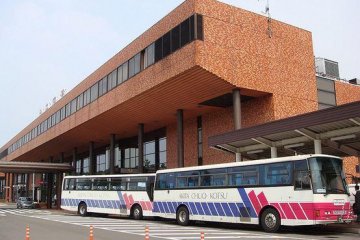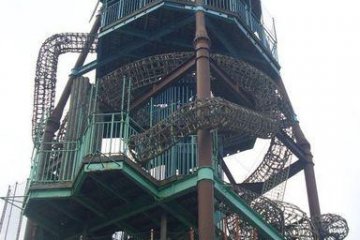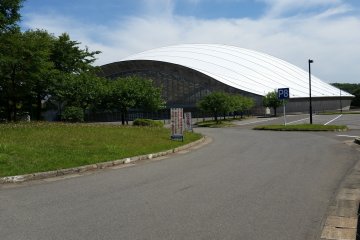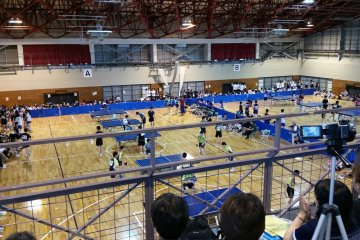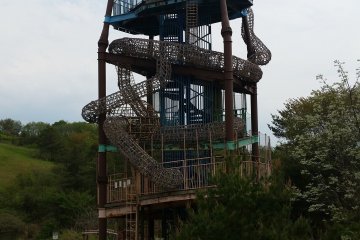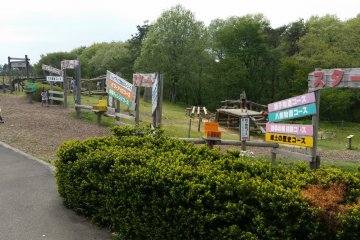Tucked away in the countryside about 30 minutes by car from Akita Station is an oasis for any fan of outdoor activities or parks. Run by the local government, Akita Prefectural Central Park was established in 1984 and contains venues for archery, track, basketball, and almost any major sport you can think of, along with cycling trails, campgrounds, and other treasures. Fairly empty when youth leagues aren’t playing there, the park hums with activity during matches and then quickly empties, ebbing and flowing, especially in the springtime and summertime.
Just across from Akita International University, the park is enjoyed by its students in addition to locals. I’ve endlessly walked and cycled through the park, which as a foreign exchange student at the time was fun to get showered with “hello”s by packs of track-suit-donning middle and high schoolers jogging their warm up laps. At the campsites you can spot snakes (or hear the rustle of fleeing snakes!) and trek up some kid-easy hiking trails to patios with great views of the Akita Airport. Further down the park is a zone that offers an obstacle course with a massive tower – something that looks like a McDonald’s play structure meets Mad Max – as its grand finale (which was sadly closed off when I went there in 2015). Strips of grass intersperse the park and are just asking to be picnicked on.
In the springtime and summertime you can watch many middle school and high school students compete in indoor and outdoor matches. I caught part of an indoor volleyball match, which dazzled me with the enthusiasm of the players cheering on their comrades and also the plastic horn sounds erupting in the stands every few moments. In fact any sport you find going on will have a repertoire of chants, sounds, and grunts that showcase the Japanese concept of ganbari (roughly “patience and determination”). The Akita Sky Dome, the most visible structure in the park, resembles a giant white space ship and provides sporting space year-round thanks to the curtain roof. Mostly used for soccer, it’s also used for croquet and baseball and underwent renovations in 2015.
The best time to visit in my opinion is around the start of summer when big competitions are held at the stadium, attracting schools from across the prefecture. The side of the field and immediate exterior of the stadium fill up with team tents, along with food vendors, a picture-viewing booth, and other things by the entrance. A schedule of events can be found on the park’s website, which is in Japanese and will probably need translating. Parking and general admission to the park is free, while private use of the gated facilities is not free. The various fees are listed on the park’s website.




